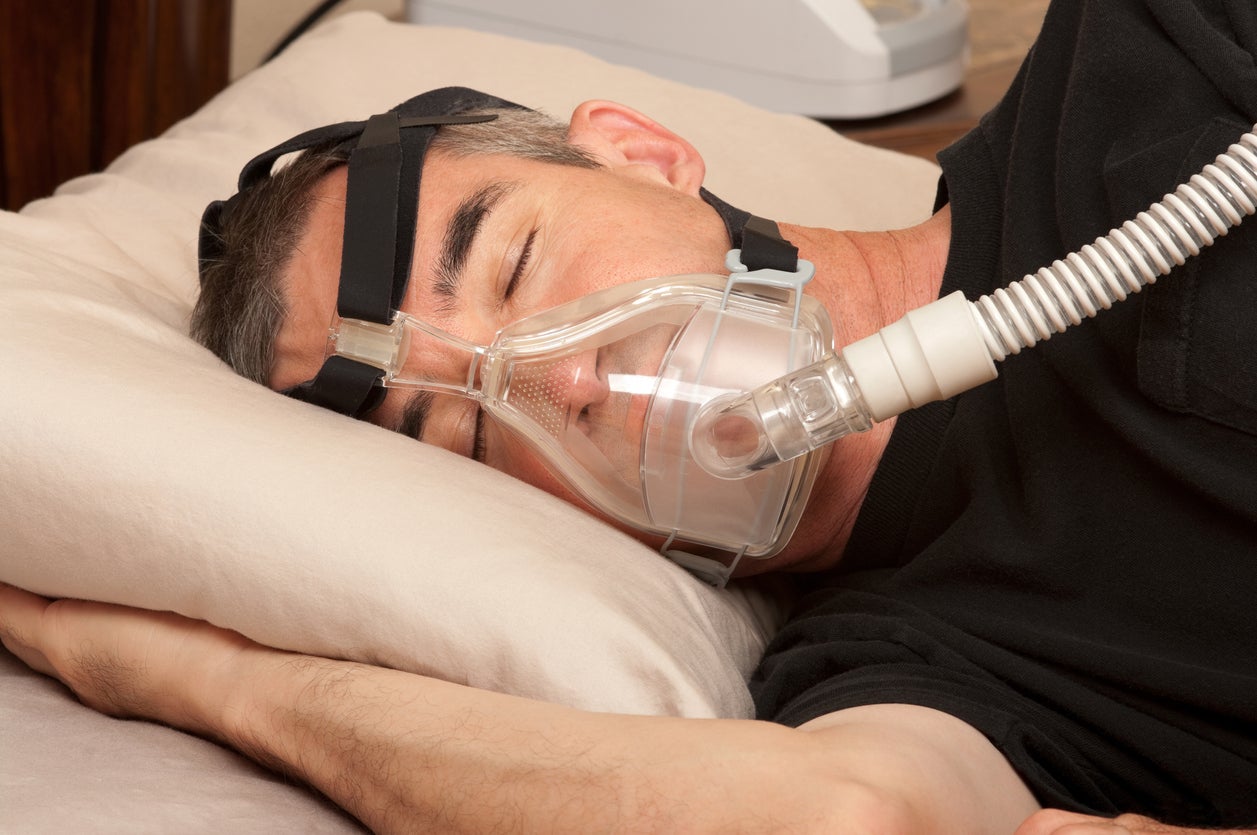Snoring treatment ‘can reduce heartburn and coughing’
Researchers looked at 822 patients diagnosed with obstructive sleep apnoea - here’s what they found

Your support helps us to tell the story
From reproductive rights to climate change to Big Tech, The Independent is on the ground when the story is developing. Whether it's investigating the financials of Elon Musk's pro-Trump PAC or producing our latest documentary, 'The A Word', which shines a light on the American women fighting for reproductive rights, we know how important it is to parse out the facts from the messaging.
At such a critical moment in US history, we need reporters on the ground. Your donation allows us to keep sending journalists to speak to both sides of the story.
The Independent is trusted by Americans across the entire political spectrum. And unlike many other quality news outlets, we choose not to lock Americans out of our reporting and analysis with paywalls. We believe quality journalism should be available to everyone, paid for by those who can afford it.
Your support makes all the difference.Treating problematic snoring can also reduce heartburn, coughing and wheezing during the night, a study has suggested.
The study examined the additional benefits of continuous positive airway pressure (CPAP) machines, which are used to help people with obstructive sleep apnoea (OSA).
The machines work by blowing air into the upper airway through a tube connected to a mask, which users wear while they sleep.
People who suffer from OSA often snore loudly, their breathing starts and stops while sleeping and they may also wake up several times during the night.
This can cause tiredness and an increased risk of high blood pressure, stroke, heart disease and type 2 diabetes.
Researchers from Iceland examined data from the Icelandic Sleep Apnoea Cohort study, including 822 patients diagnosed with moderate to severe OSA. They answered sleep questionnaires before starting the CPAP treatment and were then reassessed two years later.
The team from the National University Hospital of Iceland in Reykjavik found that people who were regularly using the machines were around 42 per cent less likely to suffer from heartburn during the night, compared to those who used the machines a little or not at all.
This decrease in reflux among people who used the CPAP machines resulted in more than a four-fold decrease in the risk of productive morning cough and almost a four-fold decrease in the risk of chronic bronchitis.
The participants who used the machines regularly were also less likely to suffer from wheezing. The data suggests this was a direct result of the treatment, rather than being caused by the reduction in night-time reflux.
Professor Thorarinn Gislason, who led the study, said: “People with obstructive sleep apnoea are three times more likely to suffer regularly with night-time heartburn. Respiratory symptoms, such as coughing and wheezing, are also more common.
“Obstructive sleep apnoea is a common condition and, although we have good ways to diagnose and treat it, many people do not realise they have this problem.
“Snoring, frequent waking and day-time tiredness are established signs of OSA.
“This study suggests that coughing and wheezing that do not get better with the usual treatments and night-time reflux should also be considered as possible signs of OSA that may require CPAP treatment.”
The findings have been published in the journal ERJ Open Research.



Join our commenting forum
Join thought-provoking conversations, follow other Independent readers and see their replies
Comments